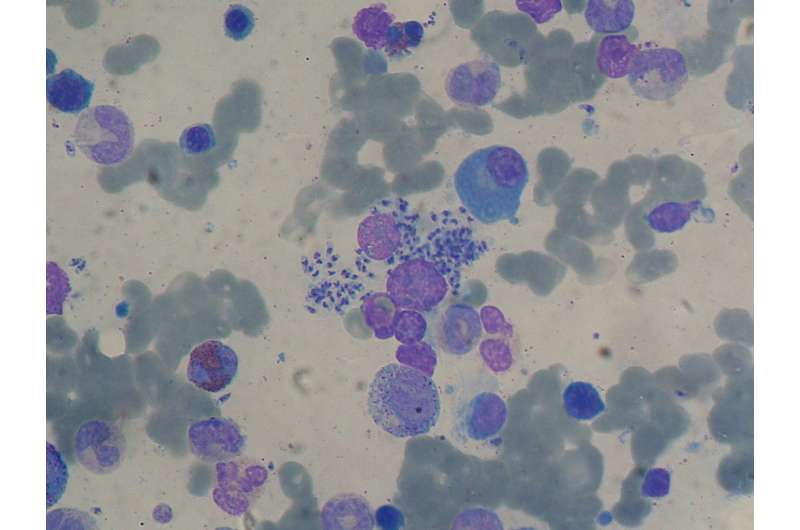Scientists reach new milestone in vaccine development for leishmaniasis

Researchers have taken an important step forward in developing a controlled human infection model to test leishmaniasis vaccines.
The University of York-led study identified and characterized a new strain of Leishmania parasite that will form the basis of a new controlled human infection model for the disease which is transmitted by the bite of sand flies. The team then produced the parasite to the standards required for use in human clinical studies.
The use of controlled human infection models has already proved invaluable in accelerating vaccine development for cholera, malaria, typhoid, influenza and other important infectious diseases. Such models are also being developed as part of the fight against COVID-19.
Around one billion people globally are estimated to be at risk of being infected with leishmaniasis in more than 98 countries.
Professor Paul Kaye from the Hull York Medical School who led the study said: "This is an important milestone for leishmaniasis vaccine development, bringing us a step closer to having the tools needed to evaluate potentially life-saving or life-changing vaccines in a timely and cost-effective manner.
"Reducing the financial burden associated with large scale clinical trials is of particular significance, given the limited funding available to develop vaccines for neglected diseases such as leishmaniasis."
The next phase of the research project will seek to recruit healthy volunteers to participate in a clinical trial to see how the body responds to the parasite and to determine how many participants are needed in future vaccine trials to determine vaccine efficacy.
Leishmaniasis is characterized by slow-to-heal skin ulcers that may spread to other areas of the body or mucosal surfaces causing lifelong stigma, or to the internal organs resulting in the potentially fatal visceral leishmaniasis. Current drug treatments are inadequate and there are currently no vaccines for human leishmaniasis. There are a reported 1,500,000 new cases and 20,000-30,000 deaths annually.
The paper called, "Characterization of a new Leishmania major strain for use in a controlled human infection model" is published in the journal, Nature Communications.
More information: Helen Ashwin et al. Characterization of a new Leishmania major isolate for use in a controlled human infection model, (2020). DOI: 10.1101/2020.08.12.245936

















